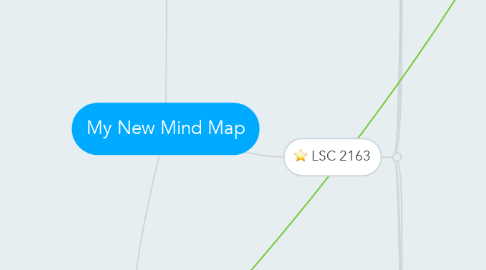
1. Economics
2. LSC 2163
2.1. Unit 1
2.1.1. 1-Subordinatesa: Person who has a less important position than you in an organization.
2.1.2. 2-Profits:Money that is earned in trade or business, after paying the costs of producing and selling goods and services.
2.1.3. 3-Resources: The department of an organization that deals with finding new employees, keeping records about all the organization's employees, and helping them with any problems.
2.1.4. 4-Scientific: Relating to science, or using the organized methods of science.
2.1.5. 5- Founded:to bring something into existence.
2.1.6. 6- CEO: Chief executive officer.
2.1.7. 7-Investor: A person who puts money into something in order to make a profit or get an advantage particular way.
2.1.8. 8-Directors: A manager of an organization,
2.1.9. 9-Accomplish: to achieve something.
2.1.10. 10-Public: Relating to or involving people in general, rather than being limited to a particular group of people.
2.2. Unit 2
2.2.1. ➢ Challenging: Difficult, in a way that tests your ability
2.2.2. ➢ Commission: choose someone to do a special piece of work
2.2.3. ➢ Performance: How well a person, machine, etc. does a piece of work or an activity
2.2.4. Outstanding: Clearly very much better than what is usual.
2.2.5. ➢ Morale: The amount of confidence felt by a person or group of people
2.2.6. ➢ Various: Many different.
2.2.7. ➢ Webinar: An occasion when a group of people go on the internet at the same time to study and discuss something.
2.2.8. ➢ Conference: An event, sometimes lasting a few days
2.2.9. ➢ Upgrade: To improve the quality or usefulness of something, such as a machine or a computer program.
2.2.10. ➢ Revenue: The income company receives regularly.
2.3. Unit 3
2.3.1. • Entertainment: performances or activities that entertain people,
2.3.2. • Reputation: The opinion that people in general have about someone or something
2.3.3. Merge: To combine or join together, or to cause things to do this.
2.3.4. • Fluent: When a person can speak a language easily
2.3.5. • Ownership: The fact that you own something.
2.3.6. • Illustrate: To show the meaning or truth of something more clearly, especially by giving examples.
2.3.7. • Insecure: Insecure people have little confidence and are uncertain about their own abilities or if other people really like them.
2.3.8. • Redundant: Having lost your job because your employer no longer needs you.
2.3.9. Financial: Relating to money or how money is managed.
2.3.10. • Senior: Used after a man's name to refer to the older of two people in the same family who have the same name.
2.4. Unit 4
2.4.1. • Diversity: The fact of many different types of things or people being included in something.
2.4.2. • Stereotype: A fixed idea that people have about what someone or something is like, especially an idea that is wrong.
2.4.3. Regulation: An official rule or the act of controlling something
2.4.4. • Universal: Existing everywhere or involving everyone
2.4.5. • Culture: the way of life, especially the general customs and beliefs, of a particular group of people at a particular time.
2.4.6. Confrontation: A fight or argument.
2.4.7. • Behavior: The way that someone behaves.
2.4.8. • Individualist: Someone who is different or original
2.4.9. Collectivist: Having a political system based on the principle of collectivism, or relating to the theory of collectivism.
2.4.10. • Logical: Using reason.
2.5. Unit 5
2.5.1. ➢ Preparation: The things that you do or the time that you spend preparing for something.
2.5.2. ➢ Interviewer: The person who asks the questions during an interview.
2.5.3. ➢ Interview: A meeting in which someone asks you questions to see if you are suitable for a job or course.
2.5.4. Referee: a person who is in charge of a sports game and who makes certain that the rules are followed.
2.5.5. Appearance: An occasion when someone appears in public
2.5.6. ➢ Psychology: the scientific study of the way the human mind works and how it influences behaviour, or the influence of a particular person's character on their behaviour.
2.5.7. ➢ Impression: An idea or opinion of what something or someone is like.
2.5.8. ➢ Individual: A single person or thing, especially when compared to the group or set to which they belong.
2.5.9. nterviewee: The person who answers the questions during an interview
2.5.10. ➢ Recruitment: The process of finding people to work for a company or become a new member of an organization.
2.6. Unit 6
2.6.1. ➢ Accountable: Someone who is accountable is completely responsible for what they do and must be able to give a satisfactory reason for it.
2.6.2. ➢ Affirmative action: If a government or an organization takes affirmative action, it gives preference to women, black people, or other groups that are often treated unfairly, when it is choosing people for a job.
2.6.3. ➢ Talent: Someone who has a natural ability to be good at something, especially without being taught.
2.6.4. ➢ Apprentice: Someone who has agreed to work for a skilled person for a particular period of time and often for low payment, in order to learn that person's skills.
2.6.5. ➢ Ethnic minority: a group of people with a particular race or nationality living in a country or area where most people are from a different race or nationality.
2.6.6. ➢ Masculine: Having characteristics that are traditionally thought to be typical of or suitable for men.
2.6.7. ➢ Feminine: having characteristics that are traditionally thought to be typical of or suitable for a woman.
2.6.8. ➢ Consumer: a person who buys goods or services for their own use.
2.6.9. ➢ Quota: A fixed, limited amount or number that is officially allowed.
